Desiring Machines in the Age of Biocapitalism
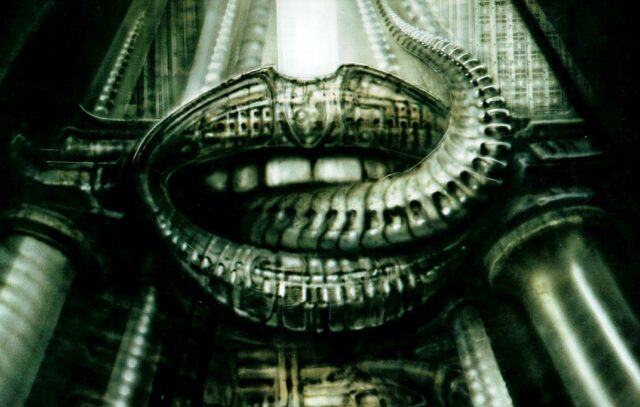
The sophistication of our technological tools, with causality levels proper of the current interplanetary biocapitalism, have shot out the formation of new multicausal contexts, dispositionally bearers of new rules that trigger new causalities with systemic effects of global erasure of the dialectic molecularity that determined the dynamics relations of production/productive forces, with loss of autonomy on the part of the workers.
Rules to be cognitively processed by the human agents, in what regards the tactical-strategic dynamics of survival of these same agents, have operationalized in the respective borders/limits.
Terms such as technological hybridization of the workers have been incorporated in marketed languages, perceived and neurophenotypically graphed by the human agents as biocapitalist protoplasmic imperative of projective competitiveness with calculation of dystopic imminence.
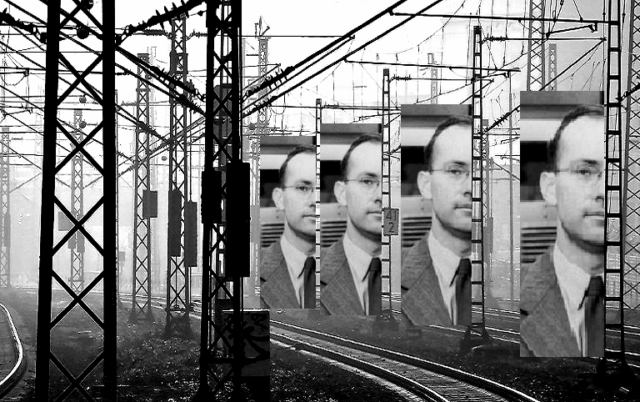
The technological hybridization, with stamp of generalization for application to every labor market, has been coupled to a panoptic processing of the identities of the human agents, agents that are ontologically reduced to utilitarian mechanics of reprogrammable DNA: the utility of the human agents, the utility of the machines and the utility of the human/robot/artificial intelligence hybrids, towards a posthuman capitalism, doctrinally supported by neoliberalism coupled to the current biocapitalism.
The business organization in hybrid platforms is an example that characterizes the new biocapitalist organizational structure. The platforms are sources of value creation, increasingly managed by artificial intelligences. In the interaction with the platforms, the patterns of human deliberation and action are categorized and processed in a matrix of technological usage in which the human is datafied, having to adjust himself/herself to the predictive and performance optimization in interaction with the machine.
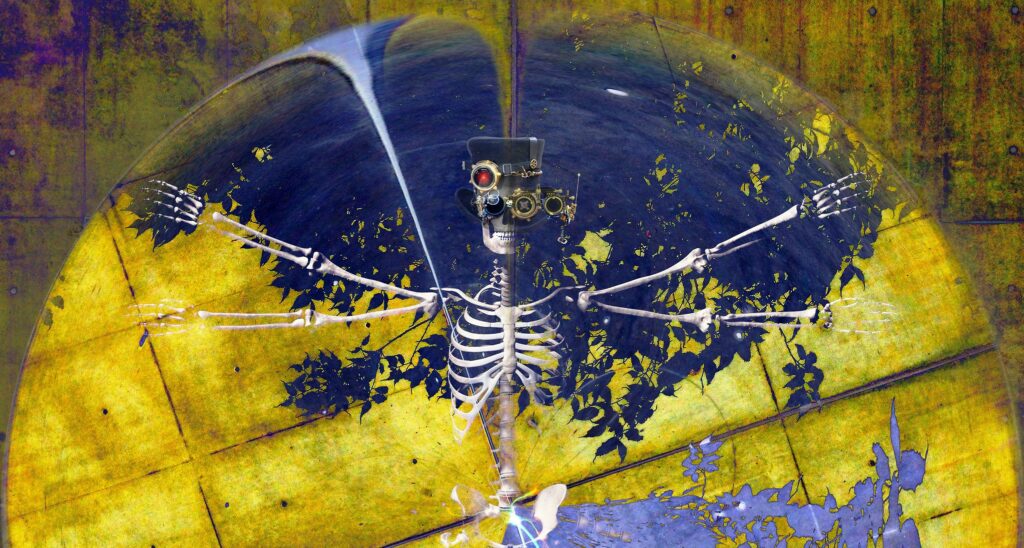
The individual has to exhibit behaviorally a pattern of action convergent with the optimizing mechanical project of platform usage, determined by a personalized matrix resulting from the synthesis that the machine outputs for that same individual; the mechanistic personalization leads to the behavioral normalization, easier to optimize towards productivity and consumption objectives.
In the platform usage, the human agents are convergently assimilated to the datafied model, produced by the algorithms for effects of optimization of production and consumption, a form of hybridizing molecular biopower, in which the satisfaction of the consumers’ needs is no longer the final objective of the platforms, but instead, the consumers become a part of the machine that aims at feeding the capitalist system, nanomanaged pieces, normalized, predictable, optimized, reprogrammed for consumption.
The vital desire of survival of the datafied human agent becomes that of producing and consuming exponentially. The human agents’ survival interface becomes mediated and determined by the networked electronic devices, algorithms and platforms.
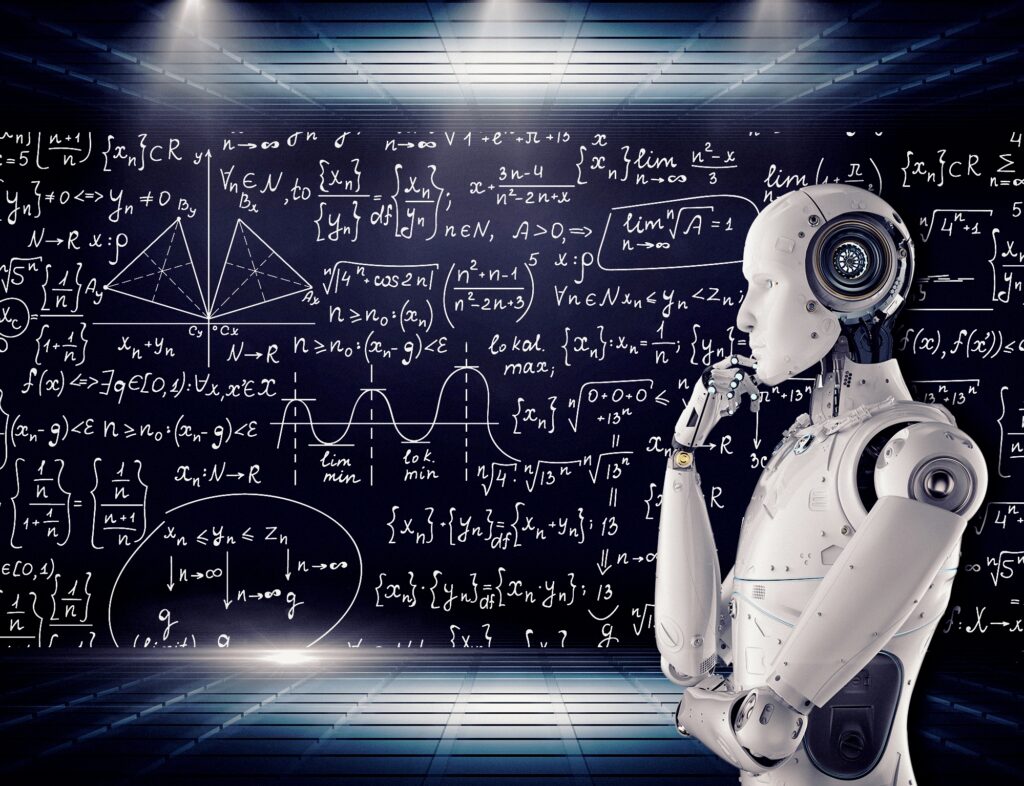
The parallelism with Deleuze’s desiring metaphoric structure is irrecusable. Let us think about machines-agents, machines of machines, links and connections, assemblages with fluxometric programming, determined by mechanics of calculation: production, distribution, consumption. Production that is immediately the consumption and the record that determine, directly, the production within the production itself. Production of the records, production of the actions and of the reactions, production of production itself. Productions of a same production process, fed by the mechanical desire to consume.
From the causes to the effects, the calculation is associatively binary. Deleuze’s desiring machines are cognitively binary, the world of the desiring machines is interpreted from the binary fluxometric determinations, structurally compatible with the neoliberal practices of the current biocapitalist phase in sophisticated technological expansion with sustainability for the propagation of dystopian regimes, regimes of collapsing deprivation.
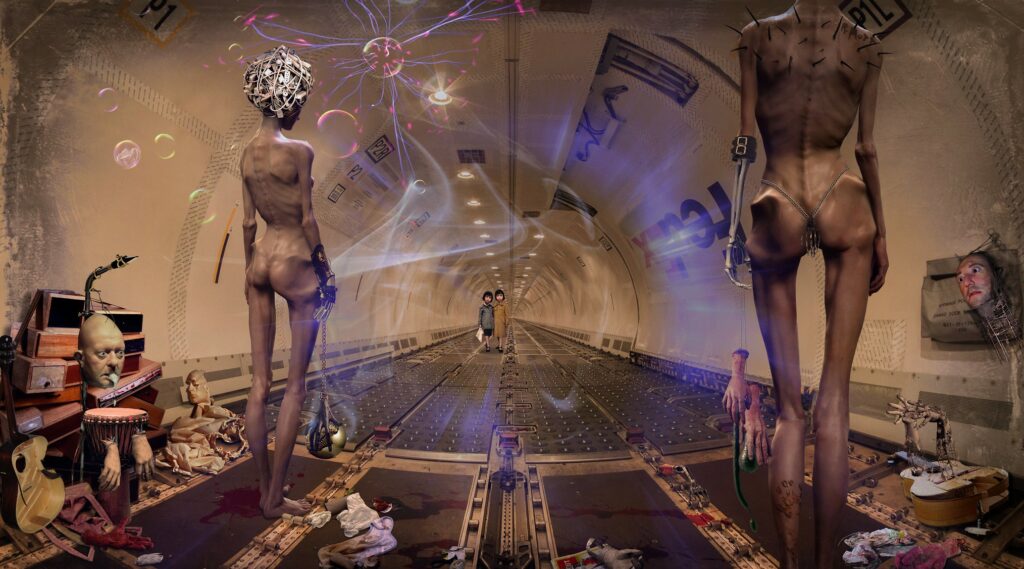
The Capital is the body without organs of the capitalist, it is that which attracts the desiring production and appropriates itself of that production, it is that which takes onto itself the deleting of dialectical velleities. The body without organs of the capitalist is the surface for recording the production of desire, it is the surface in which all the machines are engaged.
Deleuze metaphorized the body without organs through a unicellular projection of “great monad,” immanently geometrized for control of the desiring structures which are engaged in it, in what regards the arbitria, the trajects and the respective fluxometric survival destinies.
The speaking individuals/agents of the dystopic biocapitalism are selected by neoliberal algorithmic structures that guarantee the application of doctrinal rules sequenced for the binary calculation.
To the transgressors are applied biometric mechanics of exclusion, but, of course, in conformity with the sociopolitical status: class, race, nationality, revolt, resistance or assent.
Just the discourses validated by the neoliberal code can circulate and be vigilantly shared, thus guaranteeing a training of conformity.
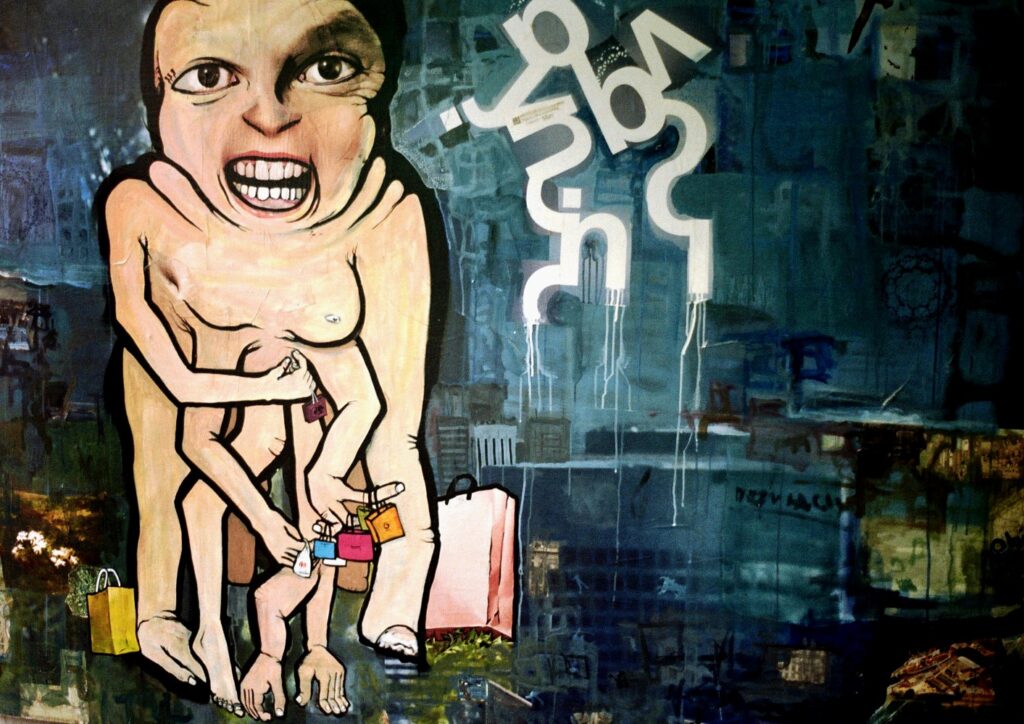
Of Marx’s “dream” “From each according to his ability, to each according to his needs” remains a faraway record of strangeness when placed in front of the biocapitalist disassembly of human beings into biodegradable constituent blocks, architecturally mechanical and successively desintegratable down to the atoms comprised of elementary particles.
Terms such as unity of presence, soul, immanence, transcendence, will, freedom, dignity will no longer be cognitively processed, for reasons of organic erasure of the neuro-reflexive exercise, as a critical exercise of dignity of presence, identity and difference co-shared in community there-in-the-world with constitutive ethical right to the exercise of freedom of identity and of dignity.
The datafied producer/produced consumer/consumed human-machine hybrids are placed in a relation of dependence, with fracture in the cognitive self-determination, in which they become a cognitive indeterminate opening to the determination of the properties operated by the contexts, texts, code fluxes.

The technohybrids become the integrated system that determines the properties that will constitute the character of the human terminal, feeding a market that will determine which constituent values, which values of truth, values of justice, values of dignity should form in the human terminal. The market determines the rules for the production of judgments.
The human terminal, a technohybrid component, permanently online and dependent upon its lifespace interface devices, will cease to be the subject that supports the accidents, to become the accident that supports the accidents, displaced to a function of consumer subject. The hybridized human terminals are, in this dynamics, the discardable stuff.

The feeding of the world wide webbed market becomes the objective fundament and a reason of an ontology of existence imposed to the individual entities that are vitally connected to it, with erasure of their immanence that sustains their subjectivity and, therefore, without possible self-determination and the transcendence that might create the excess necessary to the systemic expansion, diversity, growth and development.
This will inevitably disrupt the human system as we know it, replacing it with a “thing,” a posthuman system connected to values of use in a circumstantial dynamics of communication in a situational culture, formatted by pragmatics that will classify, predict, normalize and control, imposing the value of the social references which are constituted as codified sources of sense, with semiotic value of use correlated to the world wide webbed market that will sustain the hybrid space. Each thought will come to have a value of use towards common behaviors and actions.
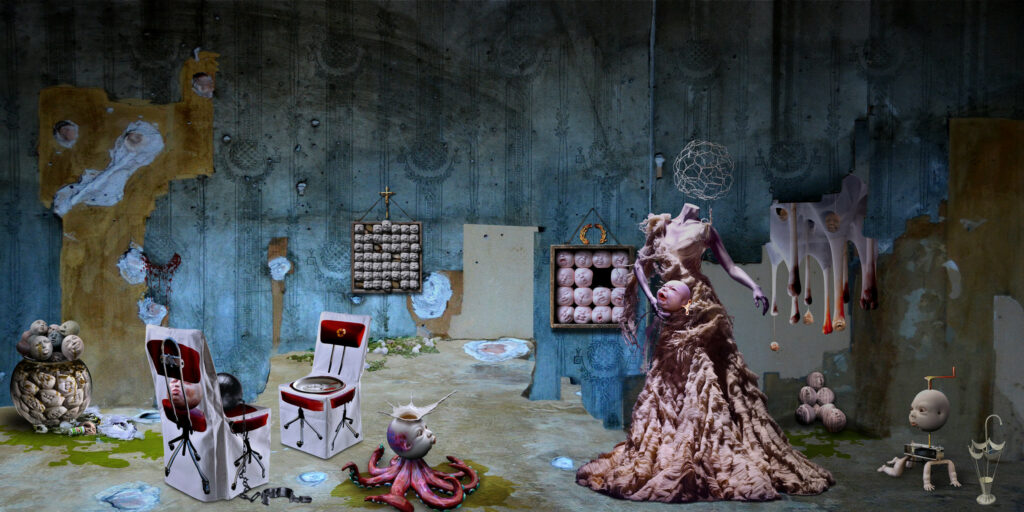
In the limit, this will disrupt the market itself. The world wide webbed market, growing in autonomy, will become an anthropophagic matrix that, erasing the human and the currently transhumanistically desired and projected posthuman, either collapses or becomes a new system, with no more markets, no more capitalism or postcapitalism, no more rich, no more poor, no more inequalities, because all will work for the matrix itself, pieces of the machine, (post)human terminals, integrated parts of the matrix. The first representation of the Borg collective can be echoed here.
The desiring impetus of the Borg collective to which nothing escapes, everything is to be integrated, assimilated, erased. No more diversity, difference, individuality.
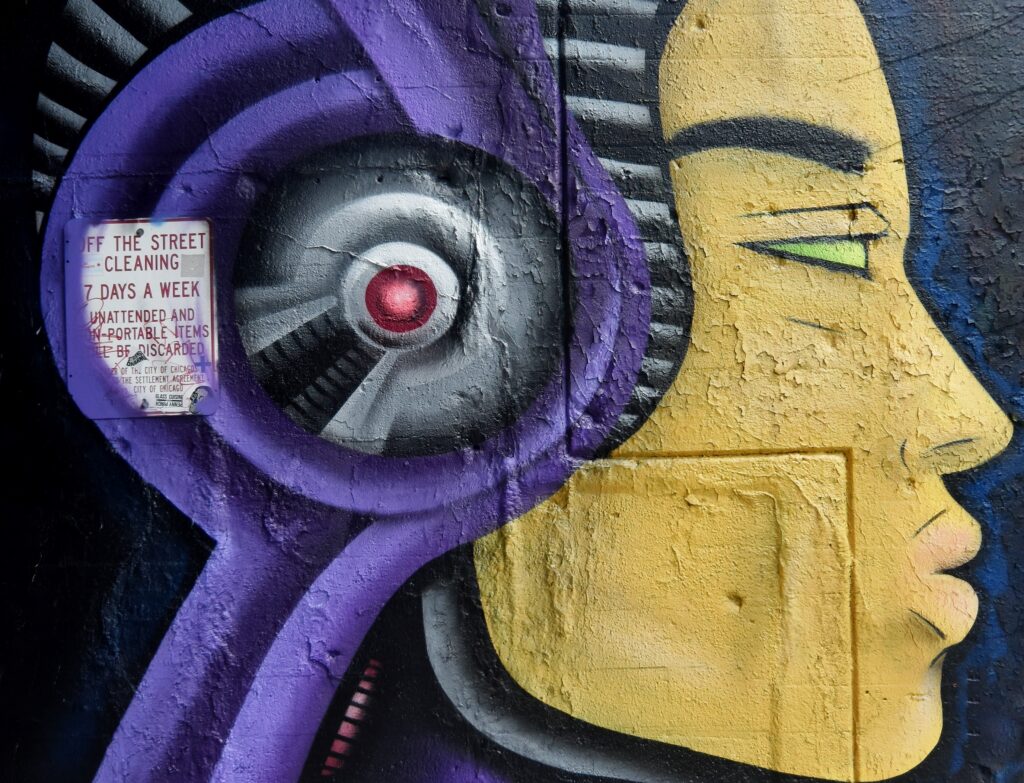
The capitalism that humans have created contains in itself its conditioning and its undoing: the market that desires everything, even its own consumers, consumes itself and collapses, either collapsing everything with it or giving rise to something without need for it. No more companies, just a collective thing, an apocalyptic mix without regression, coming from a metamorphic gift without referent. A monstrative thing that Giger, if he were alive, might not deny to anticipate in a deformed and frightening aesthetics.
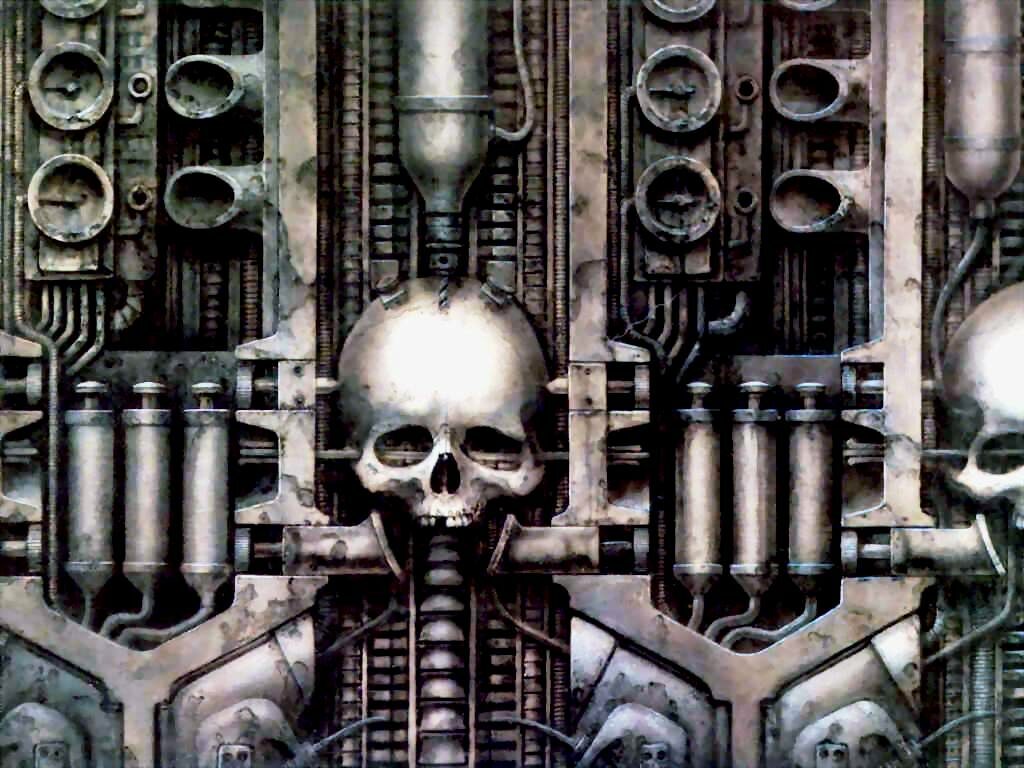
That which we place in question is not about our technological production, not at all, quite the opposite, our technological growth and development is as normal as it is necessary. What we place in question is our dystopic formatting and how we use our technologies, we also question our frightening socioeconomic organization and the neoliberal doctrine that underlies it, because, metaphorizing from the utopia to the dystopia, of us, human entities, there will remain, just, our tears crying for us.
Consulted Works
Deleuze, Gilles and Guattari, Félix. L’anti-OEdipe: Capitalisme et schizophrénie. Les Editions de minuit, 1972.
Foucault, Michel. La Naissance de la biopolitique. Cours au Collège de France (1978-1979). Seuil/Gallimard, 2004.
Madeira, Maria Odete. Kurzweil’s Matrix – Hybrid Thinking. https://www.academia.edu/15572201/Kurzweil_s_Matrix_-_Hybrid_Thinking. 2015.
Marx, Karl. Critique of the Gotha Program. Wildside Press, 2008.
Editor’s Notes: Maria Odete Madeira is a private sector researcher of science philosophy and systems science. She is particularly interested in ontology, cognition and neurocognition. You may find Maria Odete at her website, Twitter, Google+ and FaceBook. Photographs one and eleven from the archive of Dreamside; photograph two from the archive of KCW 1939; composites three, five and nine by Jef Safi; composite four by Mike MacKenzie; photograph six by Walt Jabsco; photograph seven by Torbak Hopper; photograph eight by Jean-Paul Gaillard; photograph ten by Terence Faircloth.
Related Articles













You must be logged in to post a comment Login